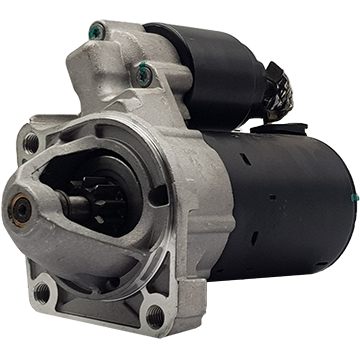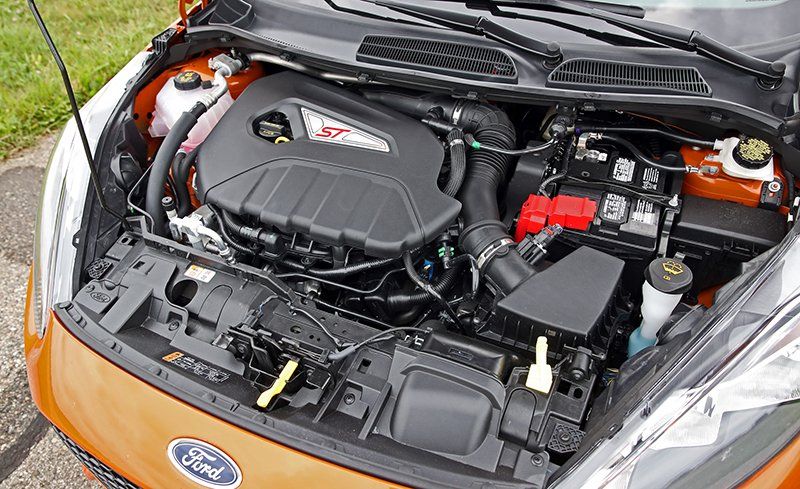Get the Most Out of Your Ford Fiesta Engine with Proper Care
Get the Most Out of Your Ford Fiesta Engine with Proper Care
Blog Article
The Future of Engines: Advancements Driving Sustainable Power Solutions
As the auto industry navigates the crucial transition in the direction of sustainability, the future of engines is significantly specified by groundbreaking innovations. Electric engine improvements, along with encouraging growths in hydrogen fuel cells and biofuels, are reshaping the landscape of power solutions. The development of hybrid systems further complicates this development, providing both obstacles and possibilities to minimize emissions properly. Coupled with the assimilation of man-made knowledge in engine style, these technological strides elevate essential inquiries concerning their lasting feasibility and influence on traditional standards. What might this suggest for the market and customers alike?
Electric Engine Advancement
The advancement of electrical engine advancements signifies an essential change in the auto and aerospace sectors, driven by the immediate requirement for sustainable choices to fossil gas. This transition is characterized by substantial developments in battery innovation, power electronics, and electrical motor design, which jointly enhance the efficiency and efficiency of electrical engines.
Current developments have actually caused the production of lighter, extra energy-dense batteries, such as lithium-silicon and solid-state batteries, which assure longer arrays and shorter charging times. In addition, enhancements in electrical motor performance, such as making use of irreversible magnets and advanced cooling systems, allow electric engines to run properly under differing problems. These improvements not just enhance vehicle efficiency yet also add to a reduction in general power intake.
Additionally, the integration of sophisticated software program formulas has actually optimized energy monitoring in electric lorries, allowing for regenerative stopping and predictive billing methods. As producers progressively embrace electric propulsion, the aerospace and automobile sectors are observing a paradigm change towards greener innovations. This development not just meets regulatory demands however additionally aligns with customer choices for eco-friendly transport solutions, solidifying electrical engines as a foundation of future sustainable movement.
Innovations in Biofuels
As the aerospace and automotive markets progressively focus on lasting power sources, innovations in biofuels emerge as a corresponding service to electrical engines. Biofuels, acquired from natural products such as plants, waste, and algae, provide a cutting-edge opportunity for lowering greenhouse gas exhausts and dependence on nonrenewable fuel sources.
Recent research study has focused on boosting the performance and sustainability of biofuel production. Second-generation biofuels use non-food feedstocks, minimizing competitors with food supply and minimizing environmental impact. Advancements in synthetic biology have made it possible for the design of bacteria to create biofuels more effectively, leading to higher yields and lower manufacturing prices.
In addition, the development of drop-in biofuels permits seamless integration into existing framework, allowing a smoother transition for sectors generally depending on nonrenewable fuel sources. ford fiesta engine. These gas can be utilized in existing engines without alterations, facilitating their adoption throughout various markets
Investments in biofuel innovation, in addition to supportive plans, are vital to drive innovation and scalability. As the global neighborhood looks for to combat climate modification, biofuels supply a practical, instant option that lines up with the overarching objective of sustainability in transport and aeronautics.
Hydrogen Gas Cell Modern Technology
A growing number of scientists and companies are checking out hydrogen fuel cell technology as a sensible alternative to standard power sources in transport and energy systems. This modern technology transforms chemical energy from hydrogen right into electricity via an electrochemical reaction, with water as the only by-product, making it an environmentally friendly option.
The core of hydrogen fuel cells is the fuel cell stack, where hydrogen particles are split right into protons and electrons. The circulation of electrons creates electrical power, while protons move via a membrane to combine with oxygen from the air, creating water. This procedure leads to high effectiveness and reduced emissions, positioning hydrogen gas cells as a crucial gamer in the change to lasting energy.
Significant developments have been made in enhancing the Get the facts sturdiness and effectiveness of gas cells, together with minimizing expenses via innovative production strategies. The advancement of hydrogen production approaches, such as electrolysis powered by eco-friendly energy resources, boosts the sustainability of the total system. As framework for hydrogen refueling expands and production methods end up being much more reliable, hydrogen fuel cell innovation holds terrific promise for decarbonizing different sectors, consisting of sturdy transport and stationary power generation.
Hybrid Equipments and Their Effect
Hybrid systems stand for a substantial development in lasting engine innovation, merging conventional interior burning engines with electric propulsion to optimize energy effectiveness and decrease exhausts (ford fiesta engine). This twin technique enables vehicles to make use of both power sources, enabling greater flexibility in power consumption and reducing reliance on nonrenewable fuel sources

In enhancement to environmental benefits, crossbreed systems offer customers a sensible transition in the direction of fully electrical vehicles. They ease variety anxiety by incorporating the ease of fuel with the advantages of electrical propulsion, making them an attractive option for a larger target market.
The Role of AI in Engine Design
Leveraging sophisticated algorithms and machine understanding strategies, the auto industry is increasingly incorporating expert system (AI) into engine design procedures. AI improves the performance and performance of layout by examining substantial datasets to recognize optimum setups and efficiency parameters. This capacity permits engineers to mimic numerous operating conditions and predict engine behavior under several circumstances, significantly minimizing the time and price connected with traditional prototyping approaches.
Furthermore, AI helps with the advancement of sophisticated materials and burning procedures tailored for sustainability. By enhancing gas performance and reducing emissions, AI-driven designs align with global initiatives targeted at minimizing the carbon impact of automotive engines. Machine understanding formulas can also anticipate maintenance demands, resulting in improved dependability and longevity of engine components.
Furthermore, AI contributes in the integration of electrification innovations, such as crossbreed systems, where check it out it can enhance battery administration and energy recovery procedures. As the sector moves in the direction of even more lasting power options, the role of AI in engine layout becomes increasingly essential, driving development and improving the efficiency of future engines. Inevitably, the cooperation between AI and engine layout heralds a new age of smarter, cleaner, and extra efficient vehicle innovations.

Verdict
To conclude, the future of engines is being formed by a merging of innovative innovations that prioritize sustainability. Electric engine improvements, biofuel developments, hydrogen fuel cells, and crossbreed systems collectively add to a considerable decrease in link exhausts and ecological effect. Additionally, the assimilation of man-made knowledge in engine layout enhances effectiveness and performance. These transformative options underscore a commitment to creating a cleaner, extra lasting vehicle landscape, ultimately profiting both society and the atmosphere.
Electric engine improvements, along with appealing growths in hydrogen fuel cells and biofuels, are reshaping the landscape of power services. In addition, enhancements in electrical motor effectiveness, such as the usage of irreversible magnets and advanced cooling down systems, allow electric engines to run effectively under varying conditions. By optimizing gas performance and minimizing exhausts, AI-driven layouts straighten with global initiatives intended at lowering the carbon footprint of automotive engines. As the market moves towards even more lasting power options, the function of AI in engine layout comes to be progressively vital, driving technology and enhancing the performance of future engines. Electric engine advancements, biofuel developments, hydrogen fuel cells, and crossbreed systems collectively add to a considerable reduction in exhausts and environmental effect.
Report this page